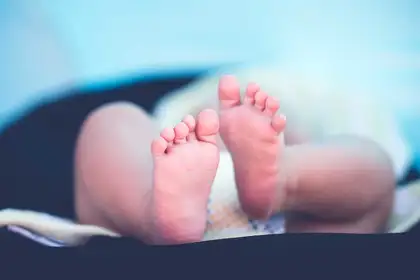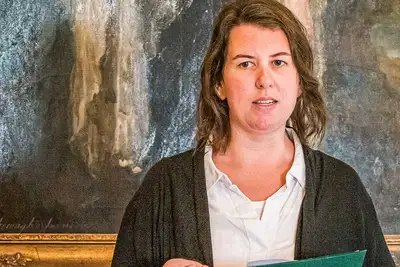
A research project is exploring the experiences of young, unwed mothers who gave birth in New Zealand public hospitals in the 1960s and 70s (image/Wikimedia Commons).
A Massey University Master of Arts student wants to hear from New Zealand women who were pressured to adopt out their babies in the 1960s and 1970s because of the social stigma of being pregnant and unwed.
Helen Peters is researching the topic for her history master’s thesis. She wants to gain a better understanding of how the experience has affected women’s lives and will focus on women who had their babies in public hospitals during the two decades. She is also keen to interview doctors, nurses and midwives who cared for young, unmarried mothers.
Although the era was a time of social upheaval and changing attitudes, with the emergence of feminism and the sexual revolution, society judged women harshly who fell pregnant outside marriage, Ms Peters says. It is estimated that about 60,000 women stayed in Salvation Army’s Bethany homes for unwed mothers from the 1950s to the 1970s. Ms Peters says previous researchers focussed on women in those homes, but little has been done on the experiences of those who gave birth in hospitals.
“By looking at the experiences of women in a state-funded institution, this really tells us how society felt about illegitimacy and unmarried mothers,” she says.
Unmarried mothers in general maternity wards would have been admitted as they went into labour, with adoption process arranged prior to the birth. “The process of having baby taken away, in keeping with women in homes, was very traumatic and emotional. There was a lot of grief.”
Ms Peters has interviewed several women so far, including one who was working and was sent away to live in another town. Others were sent to farms or to stay with relatives out of town. “Places where they were anonymous and nobody knew them because of the shame and stigma of it all. I’m keen to know how they managed their pregnancies in the community rather than in a home.
One woman she spoke to saw a doctor regularly but had no idea what was happening to her when she went into labour. Formal sex education was either limited or non-existent at the time – as was access to contraception, especially for unmarried women. Many were simply unaware of how one became pregnant, Ms Peters says.
She will also explore the impact of the introduction of the Domestic Purposes Benefit in the 1970s, which led to a big fall in adoption numbers.

Helen Peters at a ceremony where she received a scholarship from the Graduate Women Manawatū Charitable Trust for her master's research project.
Adopted children not forgotten
Ms Peters is mindful that talking about such experiences could be difficult and painful, and she is ensuring follow-up support and counselling is available to women who do want to speak about their experiences and may need ongoing help.
Interviews will be anonymous as will details of women’s hometowns and hospitals where they gave birth. She suspects there are women who have never spoken about their pregnancy and is hoping that these women will find the act of sharing their story cathartic as well as affirming to have it on record. “All over Western world, women are coming forward to tell their stories,” she says.
In New Zealand, a group is lobbying the government for an apology over forced adoptions. Ms Peters notes that former Australian Prime Minister Julia Gillard did so in 2013, setting up dedicated services to support women and their adopted children. “That trauma doesn’t go away – it doesn’t just fade into the background. If anything, the women I’ve spoken to can recall with utter clarity what happened to them.
“The prevailing theory at the time among people advocating for these adoptions was that they believed the mother would go home and forget all about it, and it would just be a little blip on the radar. That’s not what happened at all. They’ve never forgotten what happened, or stopped caring or wondering about the children taken from them. It’s an incredibly heart-breaking story but it’s also a tribute to how strong these women were, that they went on to rebuild their lives afterwards and function in a society that had condemned them in so many ways, just because they got pregnant out of wedlock.”
“There’s still much we can learn. I can appreciate that if you are adopted you might be wondering why you were adopted,” she says. The repercussions of forced adoption affected the wider families too, she says, “especially those from Māori backgrounds – they lost their whakapapa”. She suspects most wanted to keep their babies but in the circumstances they could not.
Ms Peters was awarded a scholarship from the Graduate Women Manawatū Charitable Trust for her project. To be part of the study please mail hlpeters06@gmail.com